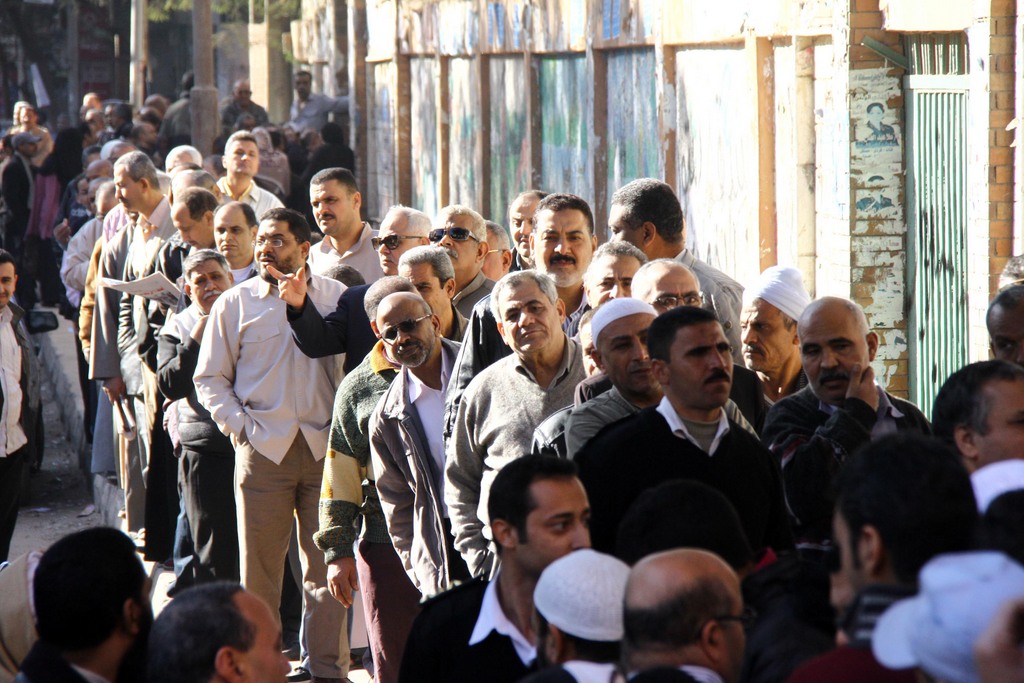The ongoing crackdown on Egypt’s Muslim Brotherhood group has entered a new phase marking a new phase in the escalating confrontation between Egypt’s two main political rivals.
It seems that the magnitude of the state’s aggression is almost comparable to that of the Nasser era. Their current effort to marginalize and isolate the Muslim Brotherhood is a departure from their previous strategy of partial inclusion and containment.
Lately they have detained more than 40 leading figures of the organization, including Khayrat El Shater (Deputy Chairman), have frozen all their assets and halted their businesses. These policies could at least be described as a backward move for democracy and human rights.
The state has further escalated its oppressive campaign against the Brotherhood by completely overlooking the latest court verdicts to release the detainees and instead transferring their cases to the notorious “military tribunals .
Since Nasser’s era, military courts have come to be known for their exceptional supra-constitutional status. Their rulings aren’t based on criminal or civil laws and cannot be appealed. The regime has used these courts more like “inquisition courts to clamp down on its political rivals, since the only authority that supersedes them is the President.
Throughout the past several months, the state-owned media unleashed an aggressive campaign against the Muslim Brotherhood, accusing them of being a threat to domestic security and national interests.
In 1954 and 1965, following two major crackdowns against the movement accusing it of plotting to overthrow the government, Nasser also led a similar campaign against the Brotherhood, portraying them as a terrorist organization which threatened the stability of the state.
This campaign was accompanied by mass arrests, torture and executions of Brotherhood, who were kept in concentration camps.
What concerns me isn’t the credibility of the martial court’s rulings, but the magnitude of the state measures against the Brotherhood and the reasons behind them. The Nasser and Mubarak experiences, however, remain inherently and structurally different despite their apparent similarities, since the political and social contexts vary greatly.
First, Nasser’s campaign took place at a time when political participation was blocked, which didn’t allow the brotherhood to function and mobilize supporters. This fact helped the regime discredit the organization in the eyes of public opinion and the international community.
Fast forward to 2007 and you’ll find an organization which enjoys a much wider network of supporters and sympathizers, which resulted in the group winning 88 seats in the 2005 parliamentary elections.
It can only be described as politically immature and unrealistic to accuse an organization which has been elected for parliament by almost three million Egyptian citizens, of being a threat to stability and national security.
The least that could be said about these accusations is that they pose a direct insult to the Egyptian voter who chose to vote for the Muslim Brotherhood despite the widely reported intimidations voters faced during the elections. Today the Brotherhood enjoys the widest support throughout Egypt and it is far from realistic to marginalize or eradicate an organized movement of such political and social weight.
Second, Nasser had a proclaimed ideological vision and agenda that he attempted to promote in the aftermath of the crackdown on the opposition in general and the Muslim Brotherhood in particular.
Although the success of Nasser’s developmental agenda continues to be debatable, he still gets credit for having a vision.
On the contrary, the current regime headed by President Mubarak has no vision whatsoever. Since Mubarak came to power 25 years ago, the state has had no political or economic vision other than to cater to the interest of the elite at the expense of ordinary people’s freedom and welfare.
In line with this doctrine, the regime is currently obsessed with securing a smooth succession plan for Mubarak’s son Gamal so that the latter could rise to power without facing any significant opposition.
This obsession can be seen in the regime’s decisions and initiatives during the past three to four years: the constitutional amendments of 2005; the crackdown on all active opposition factions; and the currently proposed constitutional amendments which are expected to legitimize the succession process.
But comparing the Nasser and Mubarak eras would go beyond the scope of this article. But it is safe to say that the consequences of Nasser’s oppressive measures had long-term devastating effects. Radical ideas led to the creation of militant groups as a result of the marginalization of moderate Islamists.
The primary victim of such a futile strategy was Egyptian society which experienced grave human and financial losses for over three decades.
The outcome of Mubarak’s shortsighted strategy with the Brotherhood can only result in more radicalism and violence. This will affect the domestic and regional political climate as well as deal a strong blow to Egypt’s social stability.
Ahmed Mansour is an MA student of Comparative Politics at the American University in Cairo.

